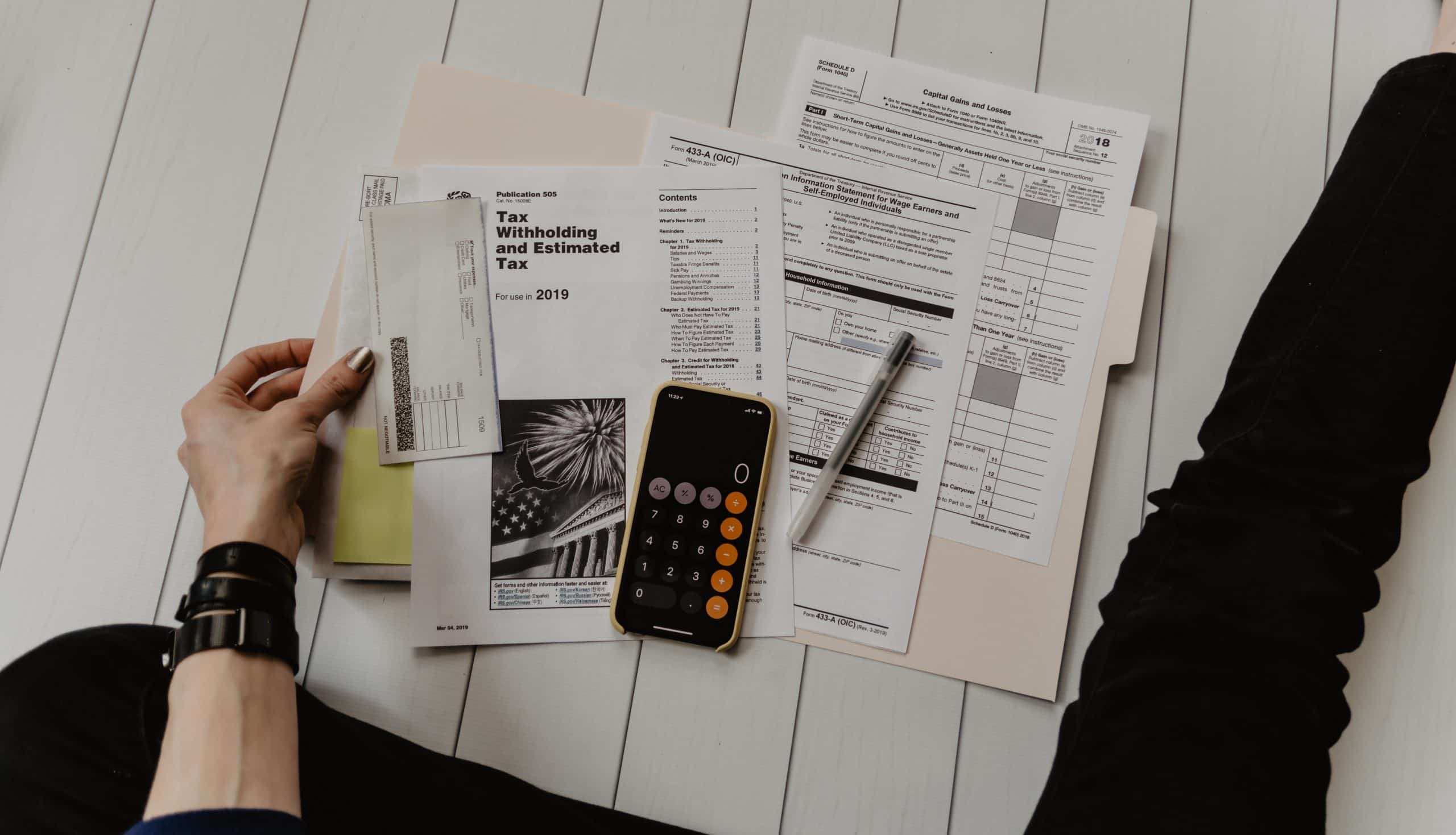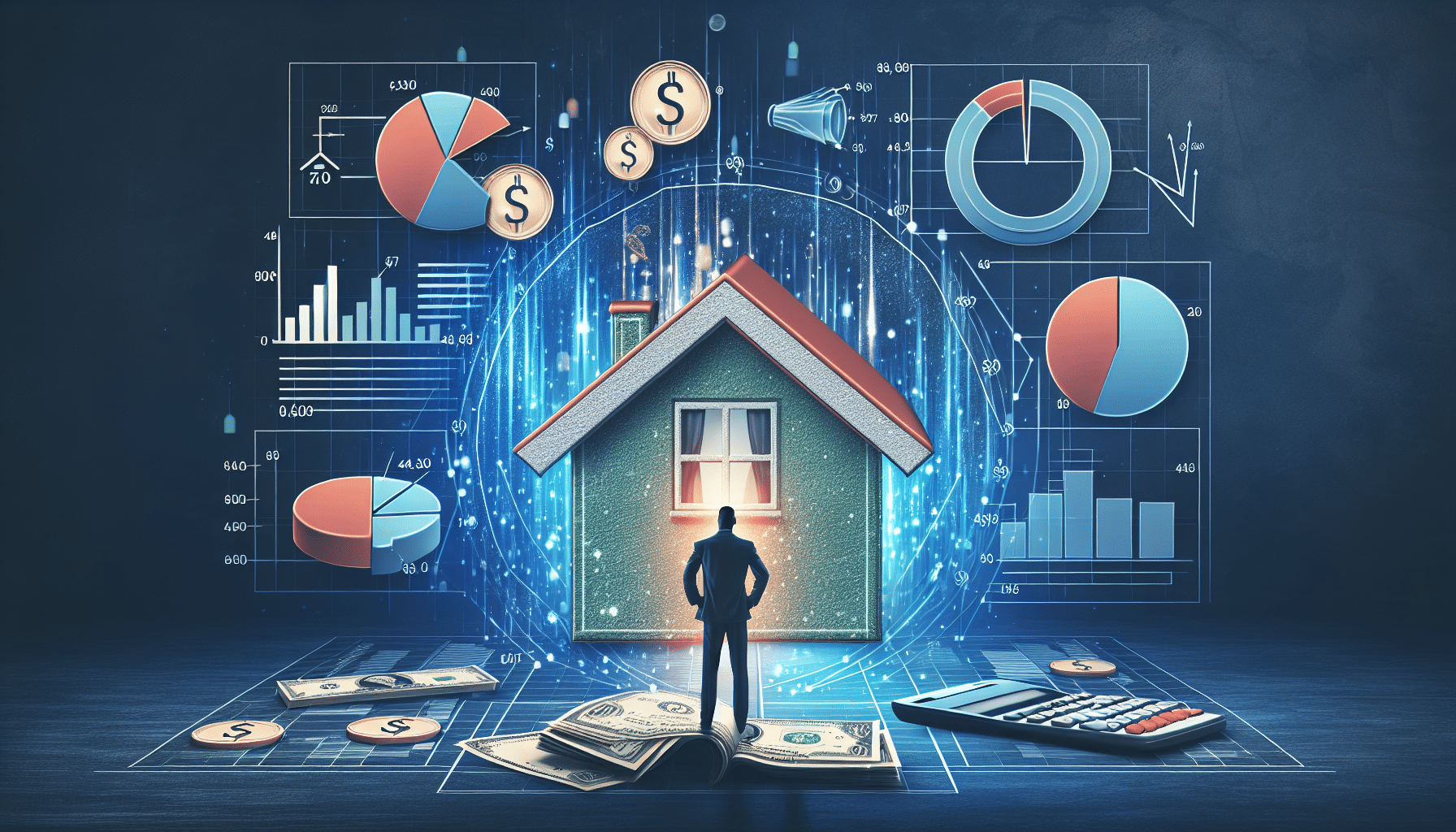When it comes to buying a home, making the right financial decisions is crucial. That's why determining your housing budget is an essential step in the process. By taking into account factors such as your monthly income, mortgage terms, down payment, and ongoing homeownership costs, you can make an informed decision about how much house you can afford. Keeping your monthly housing expenses to no more than 25% of your take-home pay is generally recommended by experts, while a debt-to-income ratio (DTI) of 35% or lower is considered healthy. Additionally, opting for a larger down payment, getting pre-approved for a mortgage, and understanding the terms of your loan can all contribute to a more financially sound home buying experience. Don't forget to also factor in closing costs, which are additional fees associated with the purchase. By following these tips, you can navigate the housing market with confidence and find the home that fits both your lifestyle and your budget.
Calculate Your Monthly Income
Determine your net pay
Before you start planning for homeownership, it's important to have a clear understanding of your monthly income. To do this, you need to calculate your net pay. Net pay is the amount of money you take home after deductions such as taxes and other expenses. Knowing your net pay will give you an accurate picture of how much you can afford to allocate toward your monthly mortgage payments.
Consider other sources of income
In addition to your primary source of income, it's essential to consider any other sources of income you may have. This could include rental income, dividends from investments, or any other form of regular income. Including these additional income sources will give you a more comprehensive view of your overall financial situation and help you determine how much you can comfortably afford to spend on housing each month.
Evaluate Your Debt
Calculate your total debt
When calculating your housing budget, it's important to take into account your existing debts. This includes credit card debt, student loans, car loans, and any other outstanding loans or balances you may have. Totaling up your debts will give you a clear picture of your overall financial obligations.

This image is property of images.unsplash.com.
Calculate your debt-to-income ratio (DTI)
One essential factor that banks and lenders consider when determining your eligibility for a mortgage loan is your debt-to-income ratio (DTI). Your DTI is a measure of how much of your monthly income goes towards paying off your debts. To calculate your DTI, divide your total monthly debt payments by your gross monthly income and multiply by 100.
Understand the recommended DTI limits
Lenders generally prefer borrowers to have a DTI of 35% or lower. This is considered a healthy ratio and indicates that you have enough income to comfortably manage your debt payments. While a DTI of up to 43% is generally the upper limit for mortgage approval, it's advisable to aim for a lower ratio to ensure you can comfortably afford your monthly mortgage payments without feeling financially strained.
Consider Down Payment
Understand the benefits of a larger down payment
Making a larger down payment on your home has several benefits. Firstly, it reduces the overall cost of your mortgage loan. A larger down payment means you're borrowing less money, resulting in lower monthly payments and potentially saving you thousands of dollars in interest over the life of the loan. Additionally, a larger down payment can help you avoid private mortgage insurance (PMI), which is typically required for borrowers with a down payment of less than 20%.
This image is property of images.unsplash.com.
Determine your minimum down payment
While a 20% down payment is often recommended, it's essential to determine the minimum down payment required for the type of mortgage loan you are considering. Different loan programs may have different minimum down payment requirements, so it's important to do your research and understand the specific requirements for the loan you're interested in.
Aim for a down payment of 20% or more
Although the minimum down payment requirements may vary, aiming for a down payment of 20% or more is generally a good idea. Not only will it help you avoid PMI, but it will also give you more purchasing power, as you'll have a lower loan-to-value ratio. A higher down payment can also give you more negotiating power when it comes to interest rates and loan terms.
Research Mortgage Options
Shop around for interest rates
When it comes to mortgages, interest rates can have a significant impact on the overall cost of your loan. It's essential to shop around and compare interest rates offered by different lenders to find the best deal. Even a small difference in interest rates can result in substantial savings over the life of your loan. Take advantage of online mortgage calculators to see how different interest rates could affect your monthly payments.

This image is property of images.unsplash.com.
Get pre-approved for a mortgage
Before you start your home search, getting pre-approved for a mortgage can be highly beneficial. This involves submitting a complete mortgage application to a lender, who will then verify your financial information and creditworthiness. Being pre-approved not only gives you a clearer idea of the loan amount you qualify for, but it also shows sellers that you are a serious buyer, which can strengthen your negotiating position.
Understand different mortgage loan terms
Mortgage loans come with different terms, which can impact your monthly payments and overall costs. The most common loan term is 30 years, but you can also choose shorter terms, such as 15 or 20 years. While shorter terms typically result in higher monthly payments, they also result in substantial interest savings. It's important to carefully consider your financial situation and future goals when selecting a loan term that works best for you.
Fixed-Rate vs Adjustable-Rate Mortgages
Consider the pros and cons of fixed-rate loans
Fixed-rate mortgages are among the most popular options for homebuyers. With a fixed-rate loan, your interest rate remains the same throughout the term of the loan, providing stability and predictability. This means that your monthly payments will remain the same, allowing you to budget effectively. However, fixed-rate loans may come with slightly higher interest rates compared to adjustable-rate mortgages.

Understand adjustable-rate mortgages
With an adjustable-rate mortgage (ARM), the interest rate is fixed for an initial period, typically 5, 7, or 10 years, and then adjusts periodically based on market conditions. While ARMs often come with lower initial interest rates, they can be riskier, as your monthly payments can increase significantly once the adjustable period begins. ARMs may be suitable for those who plan to sell or refinance before the adjustment period begins.
Explore Alternative Loan Options
FHA loans
FHA loans are backed by the Federal Housing Administration and are designed to assist borrowers with lower credit scores or limited down payment funds. These loans often require a down payment of as little as 3.5% and have more flexible credit requirements compared to conventional loans. However, FHA loans do require mortgage insurance premiums.
VA loans
VA loans are available to eligible veterans, active-duty service members, and surviving spouses. These loans, guaranteed by the Department of Veterans Affairs, often come with favorable terms, including no down payment requirement and no mortgage insurance. VA loans are a great option for those who have served in the military.

USDA loans
USDA loans, backed by the U.S. Department of Agriculture, are designed to promote homeownership in rural areas. These loans offer 100% financing, meaning no down payment is required, and often come with low-interest rates. USDA loans have income and property eligibility requirements, so it's important to check if you qualify before considering this option.
Factor in Ongoing Homeownership Costs
Calculate property taxes and insurance
When budgeting for homeownership, it's important to factor in ongoing costs such as property taxes and insurance. Property taxes can vary significantly depending on your location, so it's essential to research the property tax rates in your desired area. Additionally, homeowners insurance is required by lenders to protect their investment in your property. Research different insurance providers to find the best coverage at the most competitive rates.
Consider maintenance and repair costs
As a homeowner, you'll be responsible for the maintenance and repair costs of your property. This can include routine tasks such as lawn care and cleaning, as well as unexpected repairs that may arise. It's important to set aside a portion of your budget for these ongoing expenses to ensure you can properly maintain your home and avoid any financial strain.
Factor in utilities and other monthly expenses
In addition to mortgage payments, homeownership comes with various monthly expenses to consider. This includes utilities such as electricity, water, and gas, as well as other expenses like internet and cable bills. It's important to take these costs into account when budgeting for your monthly homeownership expenses.
Set a Realistic Budget
Consider your lifestyle and financial goals
When setting your housing budget, it's crucial to consider your lifestyle and financial goals. Think about what you value most and how much you're willing to allocate towards your mortgage payments. Remember to leave room in your budget for discretionary spending, savings, and other financial goals you may have.
Be mindful of future expenses
While it's important to be mindful of your current financial situation, it's equally crucial to consider future expenses. This includes potential changes in income, family planning, and other life events that may impact your financial situation. By thinking ahead, you can ensure that your housing budget remains sustainable in the long run.
Set a budget that allows for savings
When budgeting for homeownership, it's important to prioritize savings. Owning a home comes with additional responsibilities and potential unexpected expenses, so having an emergency fund is essential. Additionally, saving for retirement and other financial goals should also be a part of your budgeting plan.
Account for unexpected costs
No matter how well you plan, unexpected costs can arise when owning a home. From major repairs to appliances breaking down, it's crucial to have a buffer in your budget to handle these unexpected expenses. By setting aside funds specifically for unexpected costs, you can mitigate the financial stress that may come with homeownership.
Understand Loan Eligibility
Learn about credit score requirements
Your credit score plays a significant role in determining your eligibility for a mortgage loan. Lenders use credit scores to assess your creditworthiness and determine the interest rate you qualify for. Different loan programs may have different minimum credit score requirements, so it's important to know where you stand and take steps to improve your credit if needed.
Review your credit history
In addition to your credit score, lenders also consider your credit history. This includes factors such as your payment history, the length of your credit history, and your credit utilization. Reviewing your credit history can give you insights into areas that may need improvement and help you assess your loan eligibility.
Consider debt-to-income ratio
As mentioned earlier, lenders evaluate your debt-to-income (DTI) ratio to determine your loan eligibility. By reducing your overall debt and keeping your debt-to-income ratio low, you can improve your chances of getting approved for a mortgage loan. It's important to factor in your DTI when considering your overall housing budget.
Be Prepared for Closing Costs
Understand what closing costs are
Closing costs are additional fees and expenses associated with the home purchase process. These can include attorney fees, appraisal fees, title insurance, and lender fees, among others. It's important to understand what closing costs are and factor them into your budget.
Anticipate additional expenses
In addition to the typical closing costs, there may be additional expenses you need to anticipate. This can include moving costs, furniture purchases, and any renovations or repairs you plan to make to the property. By accounting for these additional expenses, you can ensure that you have enough funds to cover all aspects of homeownership.
Budget for closing costs
When budgeting for your home purchase, it's crucial to allocate funds specifically for closing costs. Closing costs typically range from 2% to 5% of the purchase price of the home. By having a clear understanding of the estimated closing costs, you can avoid any surprises and ensure that you have enough funds to complete the transaction.
Buying a home is a significant financial commitment, and careful planning and consideration are necessary to ensure a successful homeownership experience. By calculating your monthly income, evaluating your debt, considering down payment options, researching mortgage options, exploring alternative loan options, factoring in ongoing homeownership costs, setting a realistic budget, understanding loan eligibility, and being prepared for closing costs, you'll be well-prepared to embark on the journey of homeownership. Remember to take your time, do thorough research, and consult with professionals when needed to make the best decisions for your financial future. Good luck on your homebuying journey!


